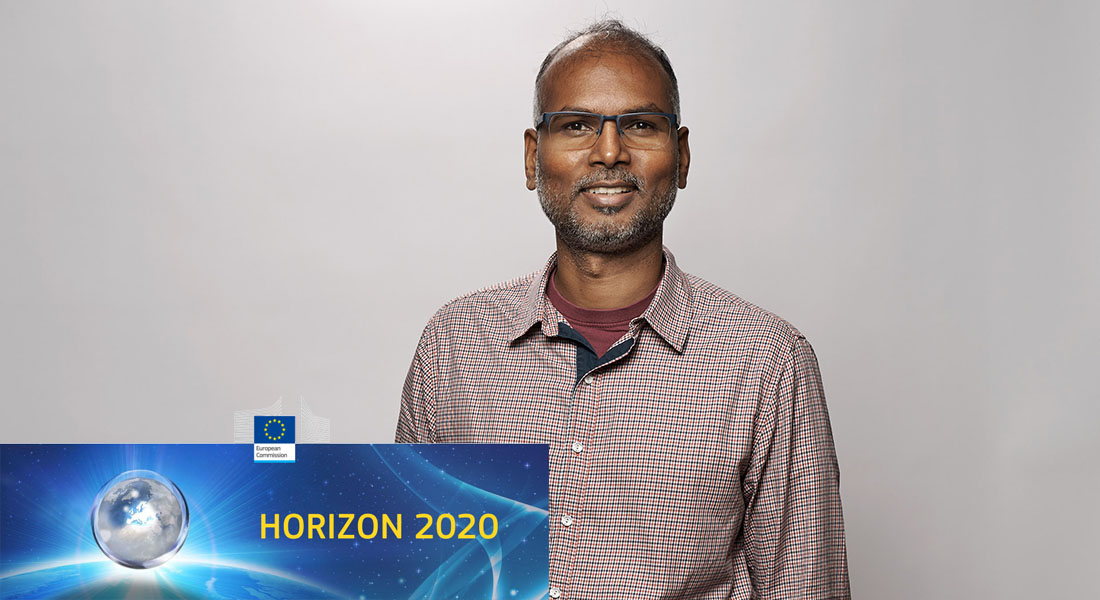CBMR joins €2M Horizon2020 project to help steer the future of human microbiome research
Microbiome research holds potential for personalized and preventive nutrition and medicine, but is held back due to a lack of standards and consensus. The Human Microbiome Action consortium will bring more than 20 partners across Europe to address this challenge, and produce recommendations to guide policy-making and funding in the field. Associate Professor Mani Arumugam from the Novo Nordisk Foundation Center for Basic Metabolic Research (CBMR) at the University of Copenhagen is co-coordinator of the consortium and leader of the bioinformatics pillar.

Our bodies teem with life – hundreds of millions of microorganisms that play an important role mostly in maintaining health and sometimes causing disease. Scientists around the world are researching this interplay and how variations in our microbial communities affect our health. By studying the genetic material of all the microbes in the body – the microbiome – scientists believe they can develop personalized and preventive nutrition and medicine.
Holding back this potential are a number of roadblocks including a lack of research standards and consensus, which prevents microbiome research from delivering on its promises. To address these issues, the European Commission has awarded a 2M Euro grant to support the Human Microbiome Action project through its Horizon 2020 program.
The grant is for coordination and support actions (CSA), rather than research, and will bring together 20 partners in Europe – including CBMR – together with international stakeholders over the course of three years. The goal is to develop new standards for microbiome research and make recommendations that will guide policy-making and the direction of EU funding.
Associate Professor Mani Arumugam from the Novo Nordisk Foundation Center for Basic Metabolic Research (CBMR) at the University of Copenhagen is co-coordinator of the consortium and leader of the bioinformatics pillar. He argues that the Horizon 2020 CSA grant will both improve the quality of microbiome research, and keep the field a priority for future funding.
What are some of the problems facing the field of microbiome research?
"One central problem is a lack of consensus on terms, like a ‘healthy human microbiome’. We use it a lot, but don’t all agree on what this means.
Another central problem is a lack of standards that affect reproducibility. The microbiome is a very dynamic component of the human body and, without standards, you might not get the same answers about the microbiome across populations and cohorts, and studies.
There are also many factors that affect the microbiome, so we need a more standardized means of recording these confounding factors to better compare experiments. We often see that the same experiment carried out in different places will produce opposite answers. And that’s because the microbiome is different in different places. A better understanding of these confounding factors will help us to understand why studies cannot be reproduced.
Ultimately, new standards will reduce the barrier to entry, and encourage scientists who are currently scared off by the lack of reproducibility."
Could you help to explain the potential for microbiome research to produce personalized medicine?
"Currently, personalized medicine is largely focused on our genome. Depending on our individual genetic variations, different therapies may be more or less effective. The same is true of our microbiome, as it interacts with the immune system. We already know that some cancer treatments are less effective with people who have a particular microbiome. The reason personalized medicine based on our microbiome holds such potential is that we can change it, whereas our genome is fixed – we can’t change it. So if there is a therapy that works better with a different microbiome, we can reconfigure the microbiome to match it."
The grant doesn’t include funding for research. Why will it still have an impact?
"The goal of these grants is to generate consensus and produce white papers for the European Commission and the wider community to steer policies – this case in microbiome research. It’s a very important task as it will ensure that future investment from the commission would be much more relevant and informed. It also provides actionable information that can be used the next time the European Commission decides to set its research priorities. In that way it maximizes the chances that investment in microbiome research continue, which will help to unlock its potential."
Read more about the International Human Microbiome Coordination and Support Action, here.
FACTS
- The Human Microbiome Action project has been awarded a €2M Horizon2020 grant from the European Commission.
- The grant runs for three years and includes more than 20 European partners.
- CBMR Associate Professor Mani Arumugam is co-coordinator and leader of the bioinformatics pillar.
- The goal is to build consensus on microbiome research, through:
- clinical trial design as well as analytical standards
- definitions of healthy microbiomes as a function of numerous factors, accounting for confounders,
- means of demonstrating causality of altered host-microbes interactions in diseases and
- processes for the development of clinically relevant, validated biomarkers.
